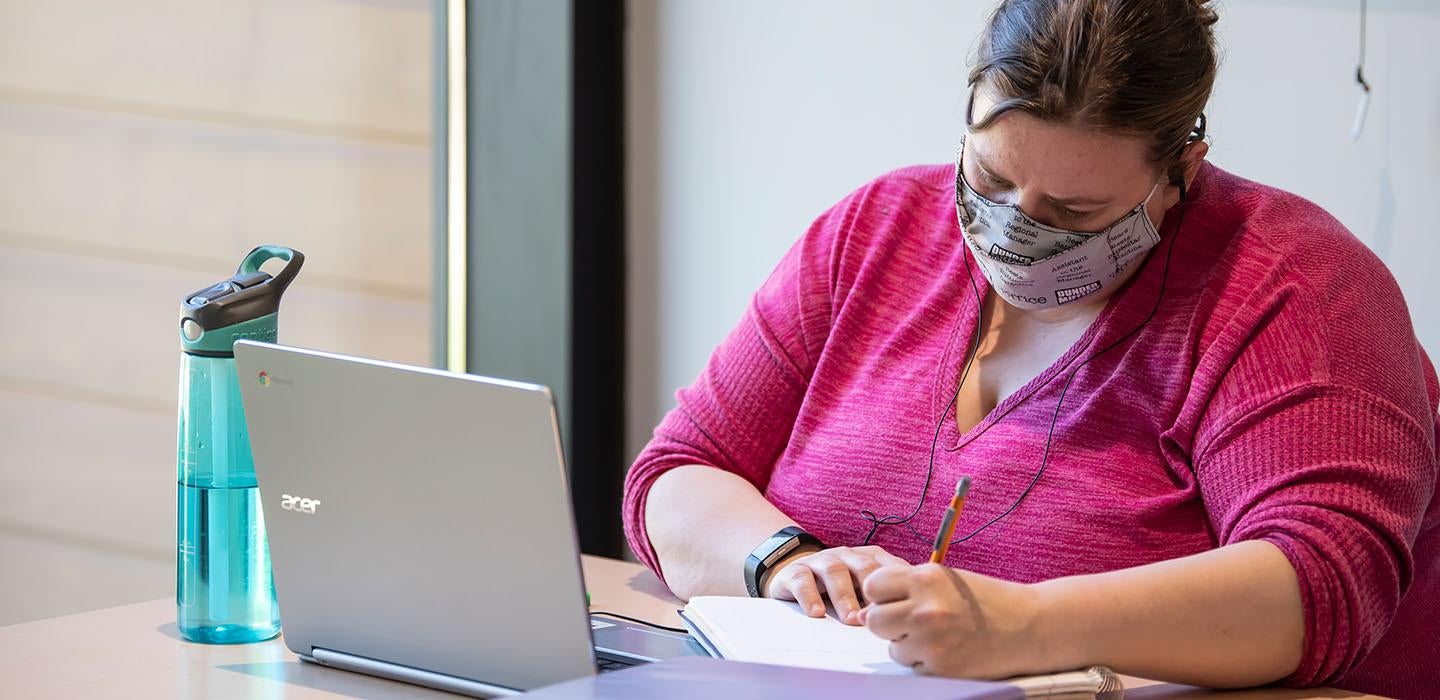
Subscribe to Pittwire Today
Get the most interesting and important stories from the University of Pittsburgh.From the archives
Marc Coutanche probably never forgets where he’s left his keys.
As an associate professor in Pitt’s Department of Psychology in the Kenneth P. Dietrich School of Arts and Sciences and a research scientist in the Learning Research and Development Center, Coutanche studies how memories are made.
He says even if we’re not trying, we are learning all the time. Whether it’s knowledge of little consequence like who got a rose on “The Bachelor” last night, or crucial information such as the formula you need to calculate the distance between two stars for an exam, we are constantly retaining information.
Ahead of finals week, Pittwire asked Coutanche to share memorization and study tips to help students ace their exams.
What is the best way to study if you only have a short amount of time?
First, a disclaimer — cramming is never the best strategy. You can save yourself so many future headaches by distributing your studying throughout the semester, but given that you don’t have a time machine, there is a memorization technique you can use.
Your goal is to process information beyond the surface level to trigger deep encoding in your brain; this involves relating what you are studying to your already established knowledge framework. Psychologists refer to this framework as an existing memory schema.
For example, I’m a psych professor, and if I attend a biochemistry lecture — a subject I don’t know much about — I’ll come out remembering very little because I don’t have a knowledge framework that I can hang new concepts on. Conversely, if I attend a psychology lecture on a topic I don’t know much about, I will still remember quite a lot because I can connect new information with what I already know and understand.
If you are a student studying at the last minute, find a way to connect the new information you are learning with an existing framework. Our lives are full of existing frameworks, including our interactions with our friends.
Here’s a scenario: Let’s imagine I am studying my notes from a lecture about aging, and I want to deeply encode what I’ve learned. I could relate the new information to a scenario or conversation I’ve had with a friend. For instance, a friend recently told me that they are struggling with memory issues as they get older. I could relate that conversation to the lecture topic by imaging how different parts of the material would be reflected in my friend.
Is caffeine a friend or foe to learning?
When studying, a stimulant such as caffeine boosts your attention, which is an important part of encoding in the moment, but caffeine also has a downside. Let’s say you are in an exam in an un-caffeinated state trying to remember material. If you’ve only been studying when you’re three Red Bulls in, you might well find it more difficult to retrieve what you’ve studied. In this case, you’ve effectively created an encoding environment that is linked to high caffeination.
[Want more advice? Here are 8 ways to study smarter, according to Study Lab tutors.]
Another thing to consider when leaning on caffeine, is that it’s habitual. After regularly consuming caffeine, your body adapts. Eventually, the pick-me-up you experience is just because of the shift from your un-caffeinated state back up to a baseline that non-caffeine drinkers are already at. Plus, as your body adapts, what you once considered a high amount of caffeine becomes your baseline, so you have to drink even more to reach that level.
Can listening to music while studying help you focus?
The most significant factor, when it comes to studying with music in the background, is whether there are lyrics in the songs. When our brain is processing what we are reading and what we are hearing simultaneously, it negatively impacts how much our verbal short-term working memory can retain and then encode into memory.

Is it more effective to study on a screen or on paper?
Studying notes on paper or reading a chapter in a textbook typically means you have fewer intrusions and temptations to focus your attention elsewhere. Stopping to watch a TikTok video or reading an email from a friend interrupts your encoding and potentially hurts how well you link the material together and engage in that all important deep encoding.
What do most students overlook when preparing for an exam?
You should get a good amount of sleep, particularly for the two nights before the exam. For those students not waiting until the last minute, you’ll still be doing quite a bit of studying right before the exam to refresh what you’ve learned throughout the semester. Studies show that the information you consume right before sleep can be prioritized in memory consolidation. As we sleep, our brain’s neurons effectively replay things that we have learned during the day, though in a sped-up form. Sleep helps your brain make the connections you need for deep encoding.
We also know that sleep is important for successfully retrieving what you learned come exam day. Importantly, sleep helps more than your memory during the exam; it supports a host of cognitive processes. If you are sleep-deprived your response times will be slower and you can get distracted more easily.
Really, the best way to prepare for a test or final is to connect what you are learning to an established knowledge framework, minimize distractions and prioritize sleep.
Photography by Aimee Obidzinski


